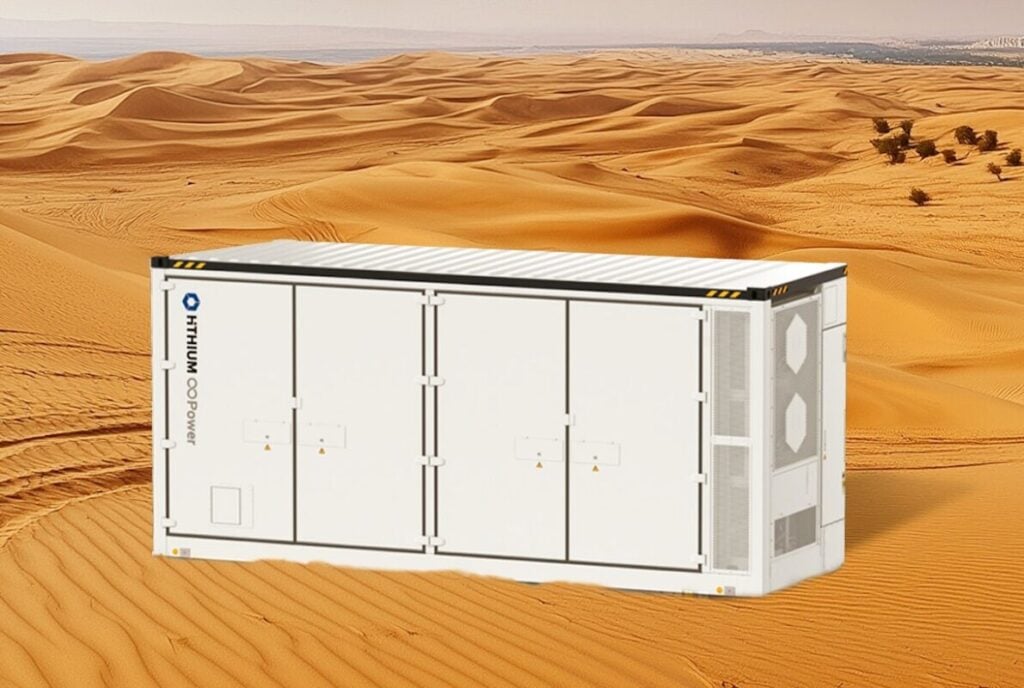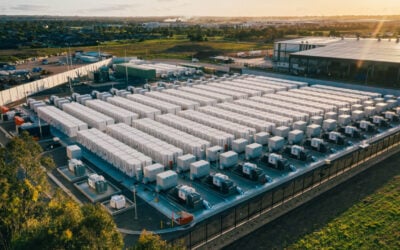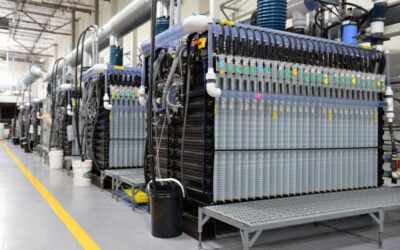
Vertically integrated battery storage manufacturer Hithium will supply two projects in Saudi Arabia with ‘the world’s first mass-produced kiloampere-hour (kAh) cells’.
The Chinese manufacturer said this morning that Saudi Electricity Company (SEC), the country’s biggest utility, has awarded it a contract to deploy battery energy storage system (BESS) solutions across two sites in the northern provinces of Tabuk and Hail.
Hithium is partnered with Saudi-headquartered engineering, procurement and construction (EPC) firm Alfanar Projects to deliver the projects.
The capacity of individual projects was not disclosed; the two’s total energy storage capacity will be 4GWh. Megawatt output was also undisclosed.
Try Premium for just $1
- Full premium access for the first month at only $1
- Converts to an annual rate after 30 days unless cancelled
- Cancel anytime during the trial period
Premium Benefits
- Expert industry analysis and interviews
- Digital access to PV Tech Power journal
- Exclusive event discounts
Or get the full Premium subscription right away
Or continue reading this article for free
Hithium did reveal, however, that the project will use the 1175Ah lithium iron phosphate (LFP) battery cells that the company began mass producing earlier this year at its facility in Chongqing, central China.
The cells will be integrated into Hithium’s ∞Power 6.25MWh Desert Eagle, a BESS enclosure specially designed to withstand harsh desert conditions.
The Kingdom of Saudi Arabia targets 50% of its electricity coming from renewable sources by 2030, necessitating 48GWh of energy storage. The contract for Hithium follows Saudi Electricity Company signing a 12.5GWh order with rival Chinese maker BYD in February, after the successful delivery of the 2.6GWh Bisha BESS project.
First past the 1,000Ah post
Hithium launched its desert-specific BESS solution at an event in October last year. The system is designed to be reliable in operation at temperatures from -30°C to 60°C due to multi-layer insulation, which reduces its internal temperature by up to 10°C. Fully sealed components are designed to protect against sandstorms, while automated dust alerts lessen the need for maintenance and the company claims durable components have been selected that are rated for more than 40,000 hours of continuous operation.
The Chinese manufacturer also said in launching the product last year that it will build a BESS factory in Saudi Arabia with 5GWh annual production capacity through Hithium MANAT, a joint venture with Saudi engineering solutions company MANAT.
The company claims to have made breakthroughs in design and manufacturing techniques that enabled it to make cells three times bigger than the 314Ah cells commonly integrated into large-scale BESS solutions.
That appears to put Hithium ahead of its peers in China. Major manufacturers of batteries for energy storage applications exhibiting at this year’s SNEC industry event in May showcased larger-format battery cells, but while 500Ah appeared to be a new standard and 600Ah+ cells an outlier pursued by a handful of players, Hithium has the head start on kiloampere-hour cells, which it said can effectively perform long-duration energy storage (LDES) applications.
Increasing sizes of battery cell and commensurate improvements in energy density are among the main drivers of cost reduction from a technology perspective, BloombergNEF (BNEF) analyst Isshu Kikuma told ESN Premium earlier this year.





